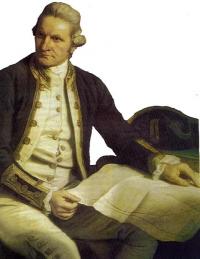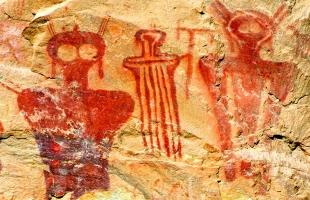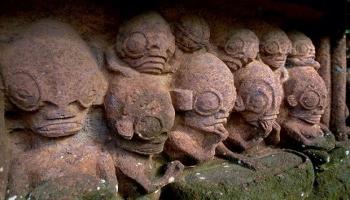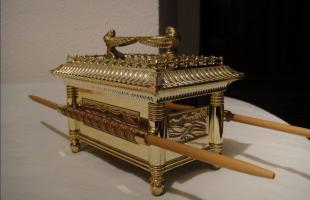13 - The farmer-labor upsurge

Via The NY Transfer News Service ~ All the News that Doesn't Fit
The Republocrats, Part 13:
The farmer-labor upsurge
By Vince Copeland
Cleveland shows his teeth
It was in the atmosphere of a farmer and labor revolt that the Democrat Grover Cleveland began his second term in 1893. Cleveland was not one to compromise with the new politics or bend even slightly to the new wind.
There was a long, bitter depression in the early 1890s. And in those days there was no unemployment insurance, no social security, no Medicare, Medicaid, SSI, or Aid to Dependent Children. The very low wages of those still working could hardly bridge the gap for more unfortunate relatives.
Then, as now, the corporations were cutting back and cracking down hard on the industrial workers--and many white collar workers, too. The railroad workers, who were in the best position to fight back, organized an exceedingly well-run strike at the Pullman Company, centered in Chicago. The main organizer and inspirer of the workers was Eugene Debs, by then in his early 40s but not yet interested in the socialism for which he became famous.
The strike was so effective that the Eastern establishment practically foamed at the mouth, branding it as anarchy, communism, rioting in the streets, etc. But all that was happening was that the workers had withdrawn their labor and were deserting the railroad yards.
Cleveland and his attorney general, Richard Olney, put their heads together to figure a way to get the U.S. Army involved so as to intimidate and/or shoot the strikers and end the strike. But the Constitution stood in their way. The governor would have to call in federal troops, and this John Altgeld of Illinois refused to do.
Olney, like Cleveland, was a former railroad lawyer. He was also a director of several railroads. He advised Cleveland to use his power to "protect the mails"--which did not really need any protecting at this point--as a cover for using the troops. A bloody battle ensued. Debs and other leaders were arrested and sent to jail. And of course the Pullman strike was broken.
This created a national crisis and an outpouring of sympathy for the workers from middle-class elements, including especially the great farm population. Governor Altgeld, a Democrat, wrote private letters to Cleveland condemning his actions. Getting no satisfaction, he went public and broke with his party chief.
There were big protest meetings in New York City. Several famous Populists and well-known Democrats also condemned Cleveland's actions.
A watershed election
The fallout and the protest came well ahead of the election of 1896, allowing the rebels plenty of time to prepare. It would prove to be another watershed election that changed the face of U.S. politics, although without stopping or even appreciably slowing down the growth of monopoly and the mad rush of imperialism abroad. It was even accompanied by increased repression in the South.
There was a great rebellion of the mass membership of the Democratic Party, especially in the West and South, against the party's Wall Street leadership. It was one of those attempts to take the power for the rank and file that we have seen several times since, but far more conscious and far more effective at that time than today.
Whitney forces outgunned
When the time for the Democratic national convention rolled around, William C. Whitney, the "kingmaker," chartered a railroad train of three luxurious cars and headed the route of the Empire State Special, passing from New York to Albany to Buffalo on the way to the Chicago gathering.
Loaded with the usual champagne and smoked oysters, if not hummingbirds' tongues, and the best 12-year-old scotch and bourbon, the train picked up the leading New York, New England, New Jersey and Midwest bigwig politicians. There were even a few men of great wealth who deigned to be seen along with Whitney at these displays of democratic decision-making.
Almost from the moment they arrived in the Windy City, the freeze was on. The scenes around the convention hall were reminiscent, said one, "of the Great French Revolution." An exaggeration, but an understandable one.
The majority of the 900 delegates, like the 20,000 spectators, had a "lean and hungry" look that contrasted starkly with the sleek, slightly overfed jowls of the members of the Whitney pageant. Their general behavior was not that of patient, carefully maneuvering politicals, but of horny-handed sons of toil wearing unaccustomed suits and ties and spoiling for a good fight.
Among other angry measures taken by the unruly body was a resolution condemning the actions of their own party chief, Grover Cleveland. This was unprecedented but it only half-expressed the bitterness of the occasion.
William Jennings Bryan
It was a stormy convention indeed. It nominated a man who owed nothing to the easterners, that is, to the Wall Street capitalists or their immediate political servants. This was William Jennings Bryan of Nebraska.
The nomination surprised the whole country, including most of the political leaders of the Democratic Party. If elected, Bryan at 36 would have been the youngest person ever to hold the office. He might also have been the most uncontrollable.
Bryan has had a bad press in recent years, pictured as a demagogue and opportunist who tried to be all things to all people. His personality is made to seem quite ridiculous in the play "Inherit the Wind," for example. At the end of his life, in the 1920s, he took on the defense of the Christian Bible in the famous Scopes "monkey trial" in Tennessee (in which a school teacher was pilloried for teaching the theory of evolution). Bryan said he believed that God made the sun stand still. He expressed a literal belief in the Monday to Saturday creation of the universe.
But at the time of his prime in 1896, this would not have seemed ridiculous to most people. Much of the city population, as well as his great farm constituency, was as hypnotized by Biblical quotations and references as he was. Unlike the fundamentalists of today, this part of the population was fighting for social justice as they saw it.
Bryan's concentration on just a few issues in the Democratic platform--especially the silver issue--was part of an all-encompassing delusion shared by millions upon millions of voters and leaders. He himself fervently believed in the efficacy of silver as a payment for debts and the medium by which an economy of abundance and liberation would be achieved. He spent many days and nights of his life studying the subject.
He made what is thought to be the greatest party convention speech of all time in his "Cross of Gold" oration. Whatever it lacked in great historical substance, it was a brave defiance of the Eastern rulers of the country and set the moneybags' teeth on edge.
"We have petitioned and our petitions have been scorned," he declared. "We have entreated and our entreaties have been disregarded; we have begged and they have mocked when our calamity came. We beg no longer; we entreat no more; we petition no more." And after a long and dramatic pause: " We defy them." (Quoted in Louis Koenig, "Bryan," G.P. Putnam's Sons, 1971)
While the subsequent campaign concentrated far too much on the silver question and tended to soft-pedal some of the most radical of the populist demands, it was generally understood to be an attempt to steer the country back on the old course of (at least occasionally) representing the "little" folk.
It was silver against gold--the silver proletariat against the golden bourgeoisie. Naturally, this was not a real polar opposition. Nor did it comprehend the scientific truth about money--on either side. But it was a class struggle, even though distorted and in electoral form, with the oppressed classes handicapped and stifled in several ways.
Red revolution in the Democratic Party?
In the East the word went out that Red revolution had taken over the Democratic Party. Nearly every large newspaper (except the Hearst chain) condemned Bryan as a dangerous fanatic and came out for electing the Republican, William McKinley. This was all the more meaningful because they knew it was not a call for communism or revolution, but only a democratic challenge to the absolute rule of big capital.
"Torrents of abuse poured forth from the clergy who beheld Bryan and the Chicago platform as equivalents in evil to the Devil and the Great Temptation. `That platform,' cried the Rev. Cortland Myers in Brooklyn, `was made in Hell,' and he promised to denounce it each Sunday until election. The Rev. Thomas Dixon Jr. spoke of Bryan at the Academy of Music in New York as a `mouthing, slobbering demagogue, whose patriotism was all in his jawbone.' His listeners howled their agreement. Other clergy likened the silver movement to theft. `Free coinage,' cried one, `will wipe out about half of every existing promise to pay.' Another saw a Bryan victory as inaugurating `a revolution the destructive consequences of which no man can picture.' And the congregation applauded. Distinguished clergymen everywhere ... joined the attack, although with a trifle more forbearance." ("Bryan")
Whitney and the so-called "gold bugs" did a walkout from the convention--and, temporarily, from the party. About 250 of the 900 delegates left with them. They set up the Gold Democrats, running a separate candidate to help the Republican McKinley win the election.
Bryan was known in the East as the leading exponent (outside of the Populists) of a tax on the income of the wealthy. This was felt to be a direct attack upon Wall Street. Amounts of as much as 2 percent of income (!) were mentioned as an adequate tax on the rich.
When such a law was actually passed, a group of very expensive lawyers pleaded for the untaxable rich before the Supreme Court. The court declared the tax unconstitutional. Only in 1916 was an amendment to the Constitution passed in order to make it possible for Congress to enact an income tax law. Of course, this law has been turned around so that today the workers pay the brunt of this "graduated" tax.
'Let's shoot a few of them'
One of the most vigorous campaigners for McKinley and against Bryan was Theodore Roosevelt. He told a huge crowd at Soldiers Field in Chicago:
"A certain Democratic leader" (he most probably meant Altgeld) was "one who would connive at wholesale murder" and "would substitute for the government of Washington and Lincoln a red welter of lawlessness and dishonesty as fantastic and vicious as the Paris Commune."
Roosevelt had been one of the Republican observers at the earlier Democratic convention. Riding home, he told a reporter from Hearst's New York Journal that ~"the sentiment now animating a large portion of our people can only be suppressed as the Commune of Paris was suppressed, by taking ten or a dozen of their leaders out and standing them against a wall and shooting them dead."
Roosevelt's estimate of how many rebellious Paris workers had been massacred was off by several thousand. In his book "The Paris Commune of 1871" (Grosset & Dunlap, New York, 1965), Frank Jellinek wrote: "According to the latest unbiased authorities, the number [of the dead] is somewhere between twenty and thirty thousand men, women and children in 10 days. There were about 18,000 communards slaughtered, most of them put in common graves."
Roosevelt later denied have prescribed such measures for disciplining the Democrats, but the reporter stuck to his story.
Indeed Roosevelt was only expressing the general feeling of the money crowd in New York. Much of their vituperation was reserved for Governor Altgeld, whose forthright defiance of the President put his governorship, his career, and ultimately his fortune on the line, sacrificing them all for his principles. More and more vilified in the East and among the tops of the Democratic Party, he was idolized among the workers and farmers of his own Illinois and throughout the West and Midwest in particular.
'The most dangerous influence'
"His sharply chiseled French Revolution face," said one critic of Altgeld, "his high, ringing voice, his bitter vehemence of manner and his facility for epithet" all added up to anarchy and mayhem.
Harper's magazine said he was "the most dangerous influence in the convention [having] the stamp of the agitator, who, when the bludgeon had failed of its full work, would be ready with the poisoned knife and who, in leading a victory-drunken mob, would not hesitate to follow pillage with the torch."
This not exactly objective reporting was printed on July 18, 1896. It corresponded to the new hysteria being generated in the East and accurately expressed the feelings and opinions of the big rich who controlled the magazine.
Roosevelt's later estimate was that Bryan was partly a youthful innocent while Altgeld was the real firebrand. Perhaps TR would have preferred that Bryan be shot together with his political manager, regardless of his relative innocence.
On the other hand, the great Populist poet, Vachel Lindsay, immortalized Altgeld in his work "The Forgotten Eagle."
"It is better," wrote Lindsay, "far, far better to live in mankind than live in a name.
(Copyright Workers World Service: Permission to reprint granted if source is cited. For more info contact Workers World,46 W. 21 St., New York, NY 10010; "workers@igc.apc.org".)
-----
NY Transfer News Service
Modem: 718-448-2358 nytransfer@igc.org nyxfer@panix.com























